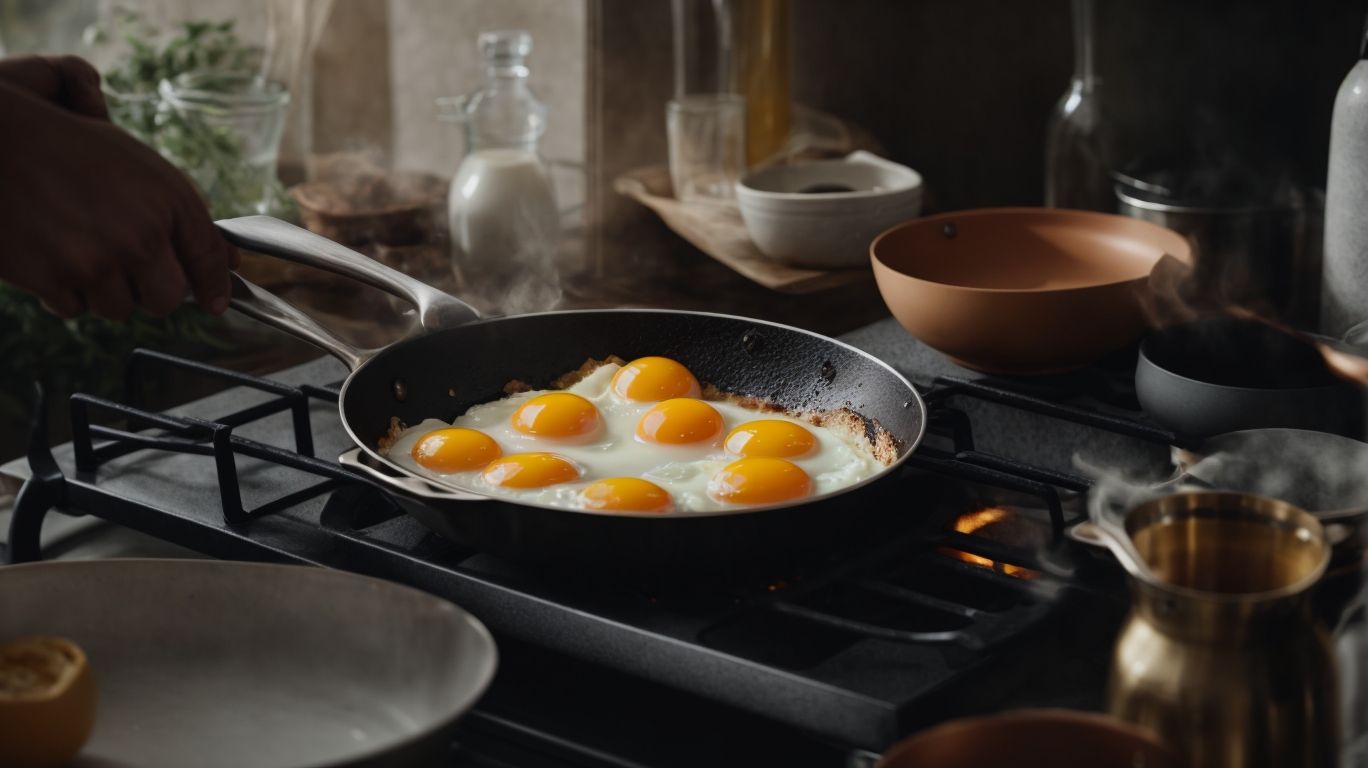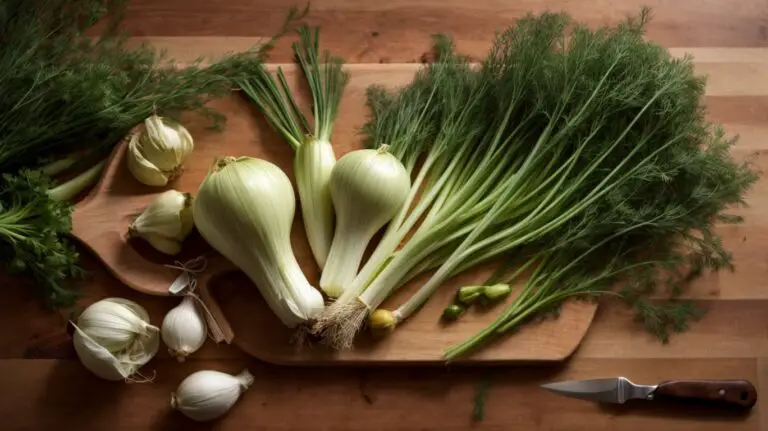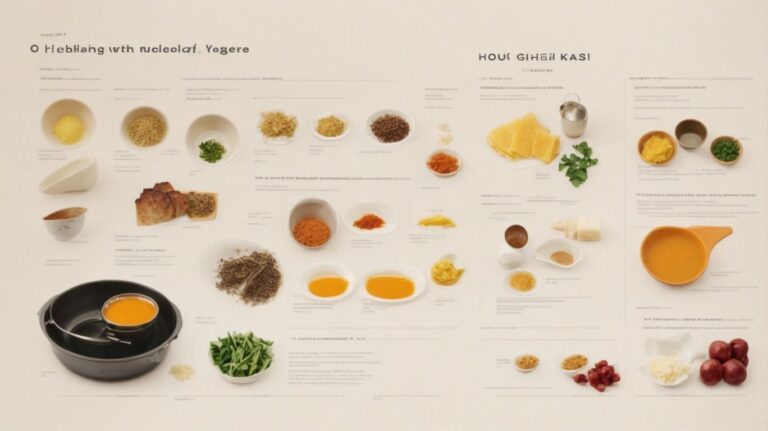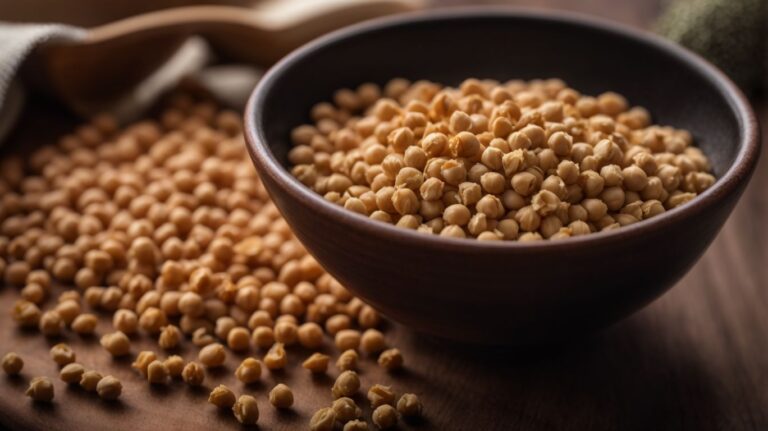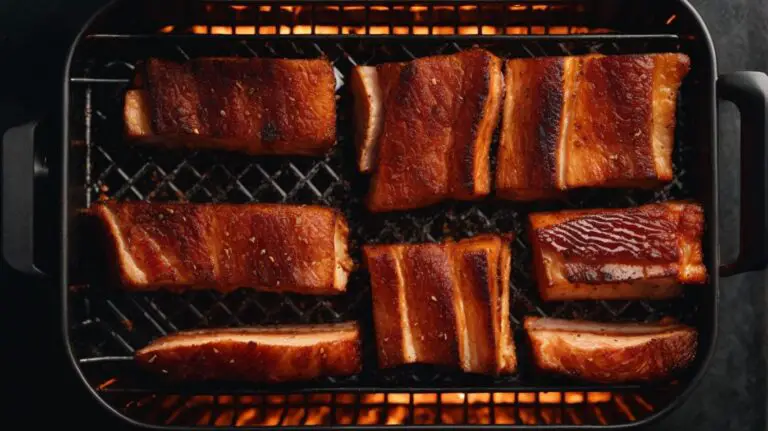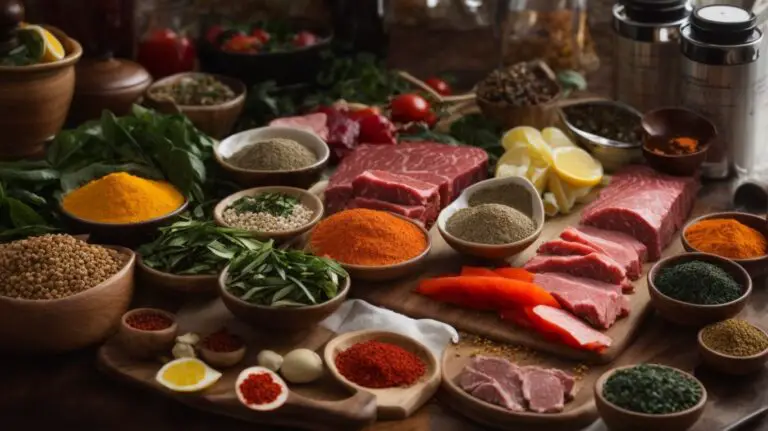How to Cook Eggs Without Sticking?
Are you tired of your eggs sticking to the pan every time you cook them?
We explore why eggs stick to the pan, the best type of pan for cooking eggs, and how to prepare your pan to prevent sticking.
Discover the best types of oil to use, whether butter is an alternative, and practical tips for cooking eggs without sticking.
Learn how to enjoy perfectly cooked eggs every time!
Key Takeaways:
Why Do Eggs Stick to the Pan?
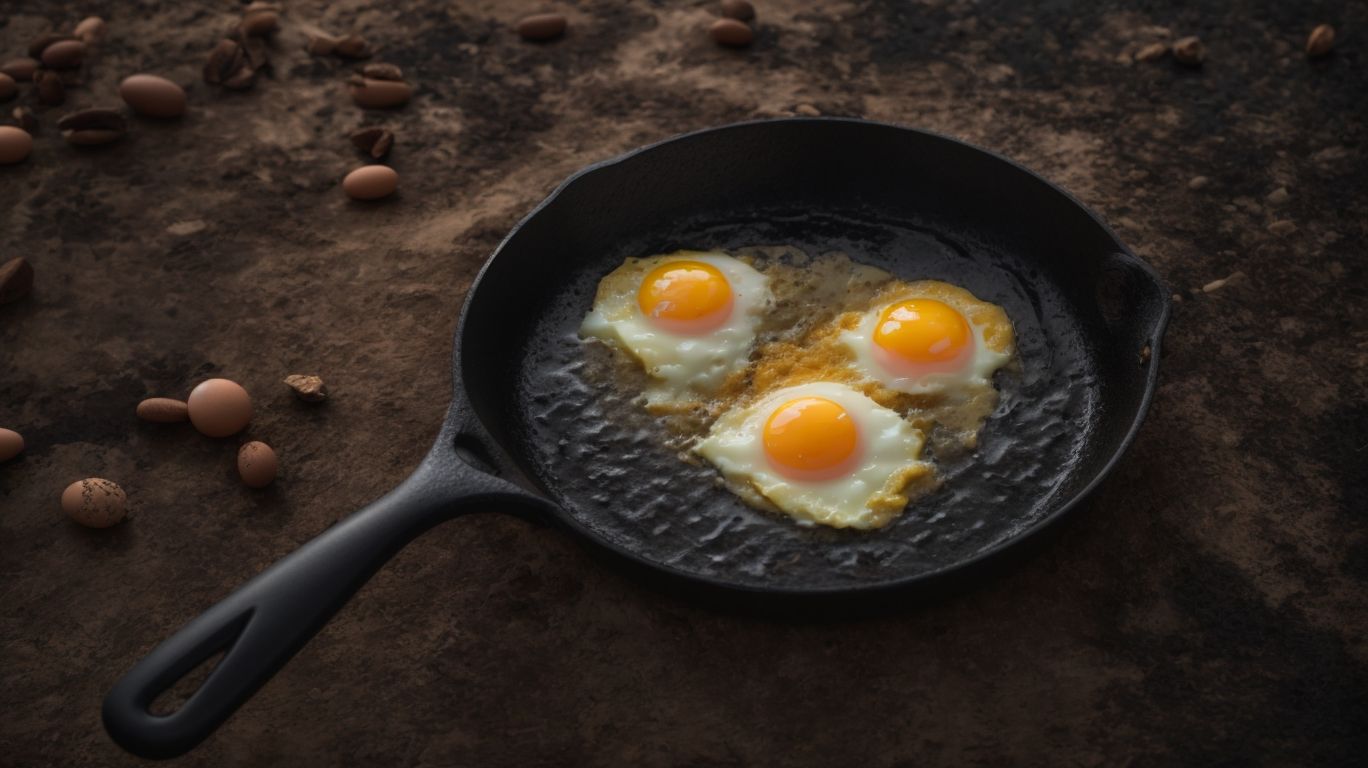
Credits: Poormet.Com – Bruce Carter
Understanding why eggs stick to the pan is essential for achieving perfect results when cooking breakfast.
When you cook eggs, the high protein content reacts to heat, causing the proteins to bond with the metal surface of the pan.
The type of pan you use also plays a crucial role in this process. A rough or scratched pan surface can provide more opportunities for proteins to stick, while a smooth, well-seasoned pan could prevent this from happening. The composition of the eggs themselves, particularly the freshness and quality, can impact how likely they are to stick during cooking.
What Type of Pan Should You Use to Cook Eggs?
Selecting the right type of pan is crucial when cooking eggs to prevent sticking and ensure a flawless outcome.
One popular choice for cooking eggs is a nonstick pan which allows for easy release of the delicate eggs without sticking. The nonstick surface requires little to no oil or butter, making it a healthier option. Nonstick pans can scratch easily and may not be suitable for high-heat cooking.
Alternatively, cast iron pans are known for their excellent heat retention and durability. They can create a beautiful sear on eggs, but they require careful seasoning and maintenance to prevent rusting.
On the other hand, stainless steel pans offer versatility and are dishwasher safe, but they may require more oil for cooking eggs to prevent sticking. Consider the type of eggs you are cooking and your cooking preferences when selecting the best pan for your needs.
What Types of Eggs are Most Likely to Stick?
Certain types of eggs, like over-easy or rubbery scrambled eggs, are more prone to sticking to the pan due to their consistency and cooking methods.
In terms of over-easy eggs, the delicate nature of the yolk makes them susceptible to sticking, especially if the pan isn’t adequately preheated or greased. The high heat required to cook these eggs quickly can also contribute to sticking if the pan is not properly seasoned or if the eggs are flipped too soon.
As for rubbery scrambled eggs, a common mistake is using too high a heat, causing the eggs to cook too quickly and seize to the pan’s surface. Adding milk or cream can exacerbate the sticking due to the proteins solidifying too rapidly.
How to Prepare Your Pan for Cooking Eggs?
Properly preparing your pan before cooking eggs is a crucial step to ensure they don’t stick and cook evenly.
One common method to prepare your pan is through seasoning, which involves coating the cooking surface with a thin layer of oil and heating it until it forms a polymerized coating. This process helps to create a non-stick surface and enhances the flavor of the eggs.
Preheating your pan before adding the eggs is essential to ensure even cooking. A properly preheated pan helps to sear the eggs quickly, locking in moisture and flavor.
What Types of Oil Should You Use for Cooking Eggs?
Choosing the right oil for cooking eggs can significantly impact the texture and flavor of your dish.
Butter, a popular choice for cooking eggs, adds a rich and creamy flavor, enhancing the overall taste of the dish. It also helps create a soft and tender texture, perfect for scrambled eggs or omelettes. Due to its low smoke point, butter may burn easily at high temperatures.
- Coconut oil is another great option for cooking eggs, imparting a subtle tropical flavor. It has a high smoke point, making it suitable for frying eggs without the risk of burning. Coconut oil also adds a slight sweetness to the eggs, contributing to a unique taste.
- Margarine, a vegetable oil-based butter substitute, provides a similar creamy texture to butter but with a higher smoke point, making it more versatile for different cooking methods. It helps prevent eggs from sticking to the pan, resulting in easier cleanup.
Can You Use Butter to Cook Eggs?
Butter is a popular choice for cooking eggs due to its rich flavor and ability to enhance the dish’s overall taste.
When using butter to cook eggs, its creamy texture helps create a velvety mouthfeel, elevating the eggs to a whole new level. The nutty aroma and subtle sweetness of butter infuse the eggs with a luxurious taste that pairs perfectly with various seasonings and ingredients. Butter has a high smoke point, making it ideal for cooking eggs at higher temperatures without burning. It’s essential to moderate the amount of butter used due to its high saturated fat content, which can contribute to overall calorie intake if consumed excessively.
How to Cook Eggs Without Sticking?
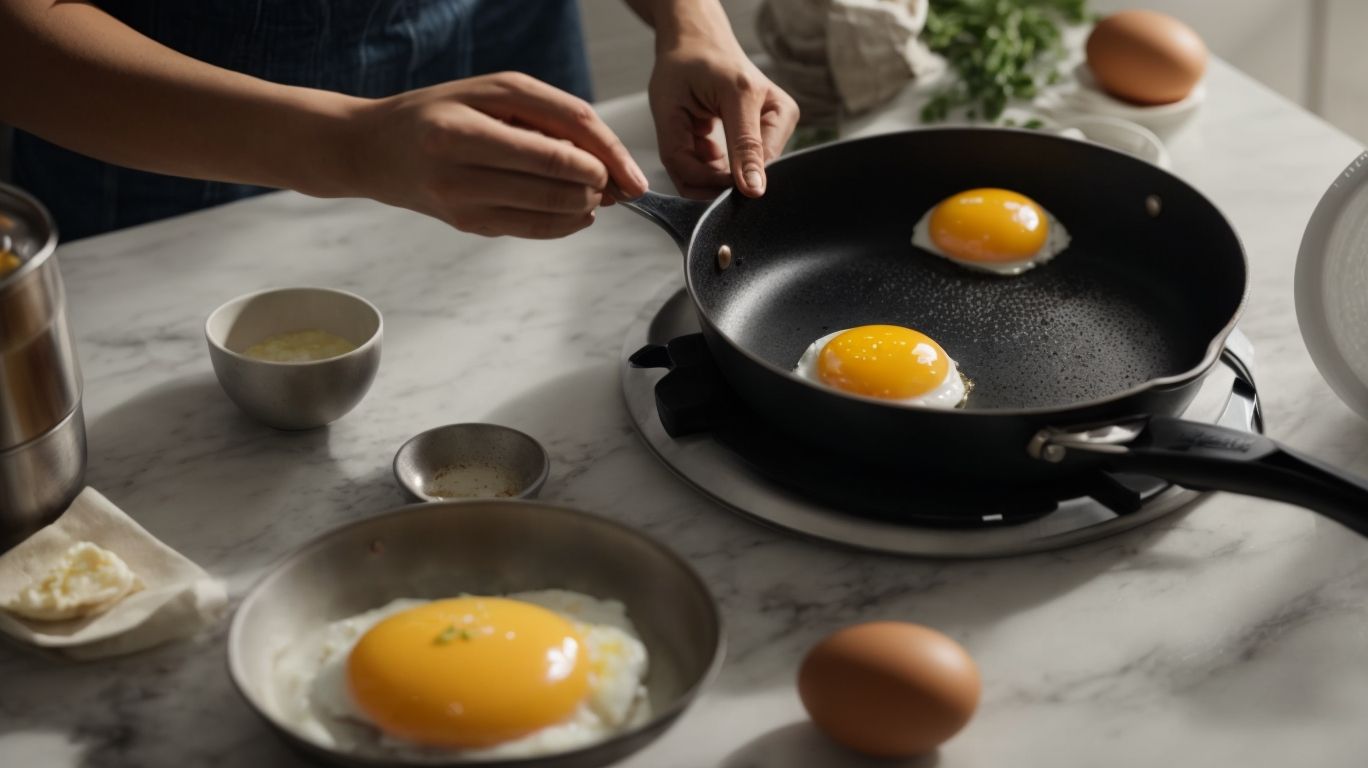
Credits: Poormet.Com – Joshua Garcia
Mastering the art of cooking eggs without sticking involves precise techniques and attention to details that ensure a perfect outcome every time.
One essential tip is to start with a preheated non-stick skillet over medium heat to avoid rapid cooking, which can lead to sticking.
When cracking the eggs, do it gently to prevent the yolks from breaking and the whites from spreading too thin.
For scrambled eggs, add a splash of milk or cream to the beaten eggs, creating a creamy texture that makes them less likely to stick.
Use a Non-Stick Pan
Using a non-stick pan for cooking eggs can make the process easier and prevent the eggs from sticking to the surface.
One of the most notable benefits of utilizing a non-stick pan is the effortless flipping of eggs – the slick surface allows the eggs to seamlessly slide around, enabling you to achieve that perfect over-easy or sunny-side-up consistency. This type of pan simplifies the cleaning process significantly, as the non-stick coating ensures that any residue or remnants can be easily wiped off with minimal effort. This not only saves time but also encourages healthier cooking habits by reducing the need for excessive oil. The overall result? Eggs cooked to perfection with minimal mess and maximum flavor!
Heat the Pan Before Adding Eggs
Preheating the pan to the right temperature before adding eggs is crucial for preventing sticking and ensuring even cooking.
When selecting the optimal temperature, medium heat works well for most pans and stove types, ensuring the eggs cook evenly without burning or undercooking.
Gas stoves tend to respond quicker to temperature adjustments compared to electric stoves, so adjusting the heat accordingly is essential for achieving perfectly cooked eggs.
Proper preheating ensures that the entire surface of the pan is evenly heated, promoting uniform cooking and preventing hotspots that could lead to unevenly cooked eggs.
Use the Right Amount of Oil
Using the correct amount of oil when cooking eggs helps in providing a non-stick surface and enhancing the dish’s flavor.
When determining the appropriate quantity of oil for cooking eggs, it’s essential to consider the cooking method. For dishes like scrambled or fried eggs, a light coating of oil in the pan is usually sufficient to prevent sticking and ensure the eggs cook evenly.
For dishes like omelets or frittatas, a slightly higher amount of oil may be needed to achieve that perfect, velvety texture and avoid any unwanted browning or sticking to the pan.
The type of oil used also plays a significant role in the final outcome. Extra virgin olive oil can add a rich flavor profile, while oils with high smoke points like avocado or grapeseed oil are ideal for high-heat cooking methods to prevent burning and retain the delicate flavors of the eggs.
Crack Eggs Directly onto the Pan
Cracking eggs directly onto the pan can help in maintaining their shape and preventing potential sticking issues.
Cracking the eggs directly onto the pan ensures utmost freshness as you can immediately start cooking them without any delay. This method also adds a touch of elegance to your dish, enhancing its presentation since the eggs remain intact and perfectly round. This technique simplifies the cooking process by eliminating the need for additional utensils, reducing both the cooking time and the cleanup afterwards. With all these benefits, cracking eggs directly onto the pan is a convenient and efficient approach for preparing delicious egg dishes.
Use a Spatula to Gently Move Eggs Around
Using a spatula to gently move eggs around the pan during cooking can help prevent sticking and ensure even distribution of heat.
A spatula is a versatile tool that not only aids in the cooking process but also assists in creating a fluffy and evenly cooked egg dish. When you use a spatula, make sure to maneuver it with soft, deliberate movements to avoid breaking the eggs. This practice will not only help in maintaining the egg’s structure but also ensure that they cook uniformly.
By gently gliding the spatula underneath the eggs, you can easily flip them without leaving any residue behind. This meticulous approach minimizes the chances of the eggs sticking to the pan, leading to a seamless cooking experience.
Add a Splash of Water or Milk to Create Steam
Adding a splash of water or milk to your eggs while cooking can create steam, preventing them from sticking and resulting in a fluffy texture.
When water or milk is added to beaten eggs, it introduces moisture, which turns into steam when heated. This steam helps to lift and aerate the eggs as they cook, resulting in a lighter and fluffier texture.
The steam created acts as a barrier between the eggs and the cooking surface, reducing the chances of sticking. This technique is particularly useful when making scrambled eggs or omelets, ensuring a smoother cooking process and easier cleanup.
Cover the Pan to Trap Heat and Steam
Covering the pan while cooking eggs helps in trapping heat and steam, ensuring thorough cooking and reducing the chances of sticking.
By covering the pan, the heat retention allows for a more even and efficient cooking process, resulting in perfectly cooked eggs. This method also helps to preserve moisture within the eggs, preventing them from drying out and becoming tough. Covering the pan while cooking eggs can enhance the flavor as the trapped steam circulates, infusing the eggs with an extra layer of tenderness and taste.
What Other Tips Can Help Prevent Eggs from Sticking?
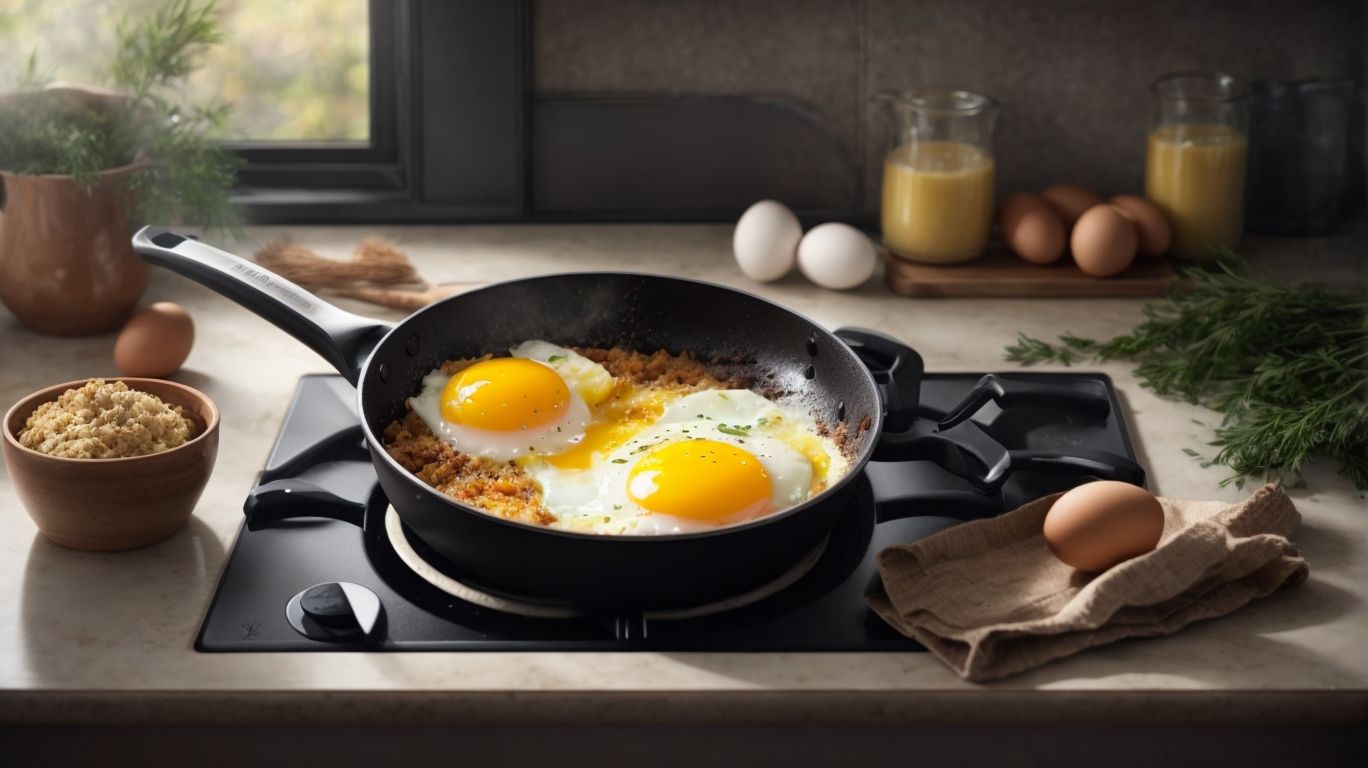
Credits: Poormet.Com – Bobby Rivera
Plus using specific cooking techniques, there are other tips that can help prevent eggs from sticking and ensure a smooth cooking process.
One effective method is to use a non-stick spray before adding the eggs to the pan. This creates a barrier between the eggs and the cooking surface, reducing the chances of sticking. Using a silicone spatula instead of metal utensils can help protect the pan’s coating. Investing in high-quality pans with a durable non-stick coating can also make a significant difference in preventing sticking. Remember to preheat the pan properly before adding the eggs for better results.
Use a Non-Stick Spray
Utilizing a non-stick spray before cooking eggs can further reduce the chances of sticking and facilitate easier cleanup.
Using a non-stick spray can enhance the overall flavor of the eggs by preventing them from absorbing excess oil during the cooking process, resulting in a lighter and more flavorful dish. This cooking aid also allows eggs to easily slide out of the pan, maintaining their shape and appearance, which is particularly beneficial when preparing delicate dishes like omelets or sunny-side-up eggs.
Use a Silicone Spatula
Opting for a silicone spatula when cooking eggs can help in gently maneuvering them, reducing the risk of sticking and ensuring a perfect finish.
The non-stick properties of silicone spatulas make them ideal for delicate textures, such as scrambled eggs or omelets, where you want to maintain the integrity of the dish without any residue sticking. The flexibility of silicone spatulas allows you to easily scrape off every last bit of egg mixture from the pan, ensuring minimal waste and a cleaner cooking process. These features contribute to achieving consistently well-cooked eggs with a professional touch, enhancing the overall eating experience.
Use a Cast Iron Skillet
Cooking eggs in a cast iron skillet can provide even heat distribution and natural non-stick properties, reducing the chances of sticking.
One of the most significant benefits of using a cast iron skillet for cooking eggs is its impressive heat retention capabilities. The skillet holds heat well and distributes it evenly across the cooking surface, ensuring that your eggs cook consistently without any hot spots.
Cast iron skillets develop a seasoned surface over time, further enhancing their non-stick properties. This seasoning acts as a natural barrier between the egg and the skillet, making it easier to flip and slide the eggs onto a plate without any residue sticking.
By utilizing a cast iron skillet, you not only enjoy the delicious flavor that comes from cooking in well-seasoned cookware but also benefit from the durability and longevity that these skillets offer. Properly cared for, a cast iron skillet can last a lifetime, making it a worthwhile investment for any kitchen.
Use a Higher Quality Pan
Investing in a higher-quality pan for cooking eggs can improve the cooking experience, reduce sticking, and enhance overall results.
High-quality pans are designed with durable materials that ensure they can withstand frequent use and high heat without warping or losing shape over time. These pans are often crafted with materials such as stainless steel or hard-anodized aluminum to provide exceptional durability. The superior heat distribution in these pans ensures that the eggs cook evenly without hot spots, leading to perfectly cooked eggs every time. The non-stick features of quality pans make it easier to flip and slide the eggs out effortlessly, resulting in a hassle-free cooking process and easy cleanup.
Conclusion: Enjoy Perfectly Cooked Eggs Without Sticking!
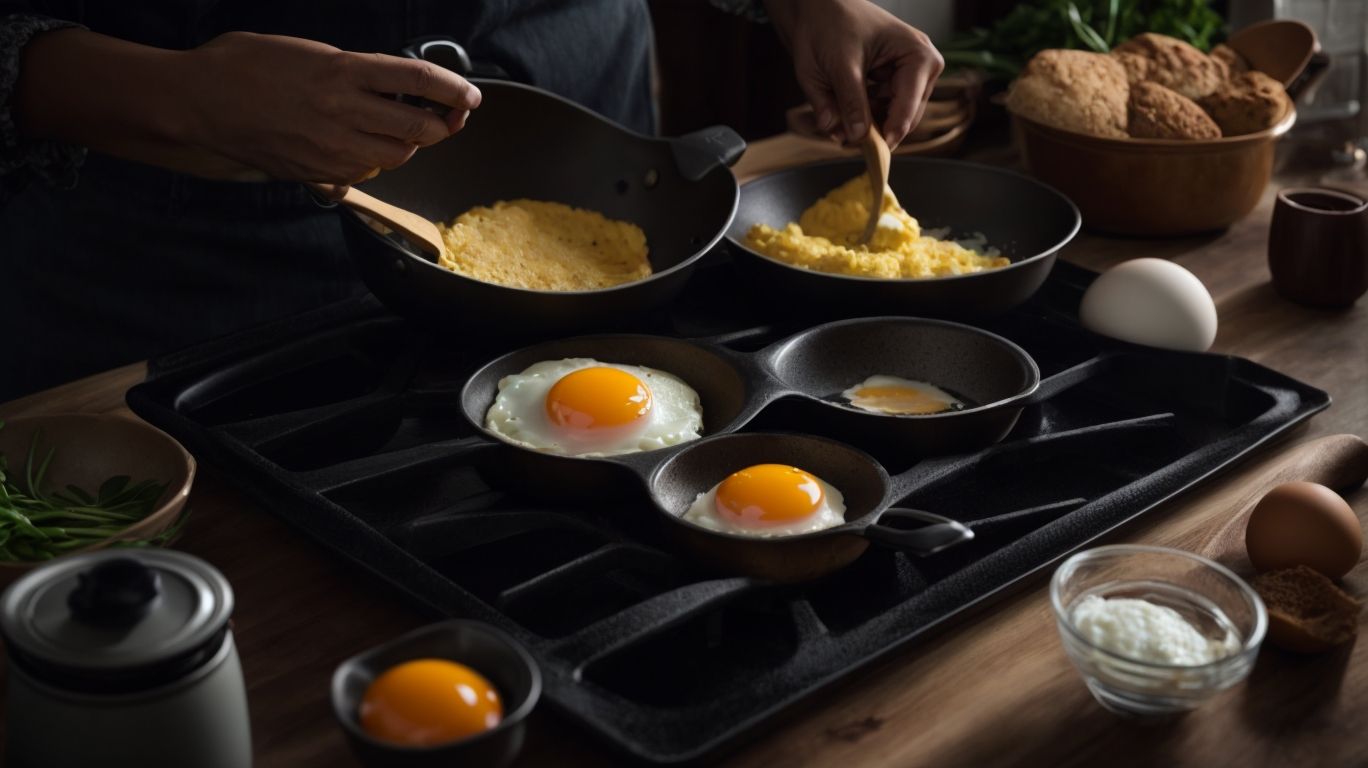
Credits: Poormet.Com – George Clark
In conclusion, mastering the art of cooking eggs without sticking allows you to enjoy perfectly cooked breakfast dishes every time.
One key technique in preventing eggs from sticking is to use a non-stick pan with a high-quality coating to ensure a smooth cooking process.
Proper heat control is also crucial; starting with medium heat and adjusting as needed can prevent eggs from overheating and sticking.
Using quality cooking oil or butter can provide a slick surface for the eggs to cook without sticking.
Remember to always use gentle cooking utensils to avoid scratching the pan’s surface, further preventing sticking.
Frequently Asked Questions
What are some tips for cooking eggs without sticking?
Answer: Some tips for cooking eggs without sticking include using a non-stick pan, using enough oil or butter, and avoiding high heat. You can also try using a well-seasoned cast iron pan or cooking eggs in a microwave-safe dish with a little water.
Can I cook eggs in the oven without them sticking?
Answer: Yes, you can cook eggs in the oven without them sticking. Try using a well-greased muffin tin or ramekins and preheating the oven to a medium heat before adding the eggs. This method is great for making individual egg dishes like baked eggs or frittatas.
What is the best type of pan to use for cooking eggs without sticking?
Answer: A non-stick pan is the best type of pan to use for cooking eggs without sticking. However, you can also use a well-seasoned cast iron pan or a ceramic pan with a good layer of oil or butter to prevent sticking.
How can I prevent eggs from sticking to the pan when making an omelette?
Answer: To prevent eggs from sticking to the pan when making an omelette, make sure your pan is well-greased and preheated before adding the eggs. Use a spatula to loosen the edges of the omelette and gently slide it around the pan to prevent sticking.
Are there any cooking methods that are more likely to result in eggs sticking to the pan?
Answer: Yes, cooking methods that involve high heat, such as frying or scrambling eggs, are more likely to result in eggs sticking to the pan. It is important to use enough oil or butter and keep the heat at a medium to prevent sticking.
What are some alternative cooking methods for eggs that are less likely to result in sticking?
Answer: Some alternative cooking methods for eggs that are less likely to result in sticking include poaching, baking, and steaming. These methods require less oil or butter and a lower heat, resulting in less sticking to the pan.

